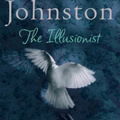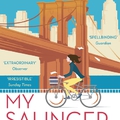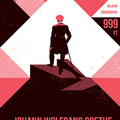James Frey: A Million Little Pieces

I came across this novel in a blog somewhere, though I can’t recall exactly what I read about Frey’s book that made me want to read it immediately. Anyway, I asked my sister to get the book for me from the library – and not buying my own copy proved to be a good idea, as this novel (or memoir? who knows) is not as good as I expected. Before I begin, let me warn you that this post will contain spoilers – if there’s such a thing as a spoiler when talking about an autobiographical, supposedly non-fiction book.
A Million Little Pieces tells the story of how James Frey became addicted to alcohol and drugs, and then how he quit drinking and taking drugs. James was admitted to a world-famous rehabilitation center at the age of 23, when he was already in a life-threateningly dangerous bodily and mental condition. The institution where James was cured is one of the most successful such institute in the world, with a success rate of around 15%, meaning that approximately 15% percent of the patients treated there remain sober one year after the end of the treatment, which is a world record. James is, therefore, in good hands, and he has everything he needs in order to quit doing drugs, but this is not easy at all, given his decade-long substence-abusing habits, his rage and his self-hatred which all make it seem much easier for him to continue drinking and die. Finally, of course, James manages to quit drinking – otherwise this book wouldn’t have been written at all.
The book deals with the period James spent at the institution, but we get flashbacks about his past, and slowly get to know his family background, the roots of his deviant behaviour and the worst deeds he committed during his decade of substance-abuse. This whole lot of background information is necessary because James needs to confront the memories of his past, and needs to face himself before he can even hope to attain sobriety and start a new life. By the way the motif of facing ourselves is the most beautiful and poetic image in the book, it surfaces again and again both in its literal and metaphoric sence, and finally becomes the symbol of James’s recovery.
As you might imagine, James’s life and the story of his recovery if full of horrible events, and the book contains several sufficiently dreadful, brutal and dramatic details of the suffering James went through until he attained sobriety. However, despite all the shocking and cruel scenes I consider this book a bit too much like a fairy tale, and it is far from being the most authentic book I’ve ever encountered in the topic of addiction.
Even though the credibility of the novel was questioned, and finally the author admitted to changing and over-emphasizing several elements in the story to make the book more dramatic, A Million Little Pieces is not inauthentic because it contains a number of fictitious elements, but because it paints too bright a picture of James’s wonderful recovery.
First, James poses as some kind of lone hero who manages to get through all the difficulties of giving up a drug habit because he is infinitely obstinate and has superhuman self-control – what’s more, he can tackle these obstacles even though he doesn’t give a damn about following the rules, in fact, he breaks all of them continuously. This in itself is a fiction of the most incredible order. James is by no means alone: he has a loving, caring, supporting family, and he undergoes the best possible treatment imaginable. Without these advantages, it would have been virtually impossible for him to recover, or simply to stay alive.
Second, despite the fact that James supposedly almost destroyed his body (there’s a detailed account in the book of the massive damage virtually all his vital organs suffered on account of his continuous alcohol and drug abuse), I think he recovers relatively easily. Of course, at the beginning of his rehabilitation, James feels rather bad, he could die for a drop of alcohol, and can hardly keep any food in his system, but suddenly, without any obvious transition he can eat and drink normally, his craving for alcohol disappears, and it’s sufficient for him if he can poison himself with coffee and cigarettes. I may have dozed off while reading certain passages and missed some vital information, but I still don’t consider James’s recovery credible. He simply recovers too quickly and too easily. It seems unimaginable to me (though may be true for all I know) that someone with a decade-long, serious drug habit gets up one day with the philosophy that „from now on I will simply say no” – and manages to live accordingly ever after.
It seems that this simple solution worked well enough for James – good for him. But this memoir is definitely not about the screwed up life of the average junkie. It’s a fictionalized personal success story, which is fine, but don’t expect too much authenticity and broader real-life relevance from it.





